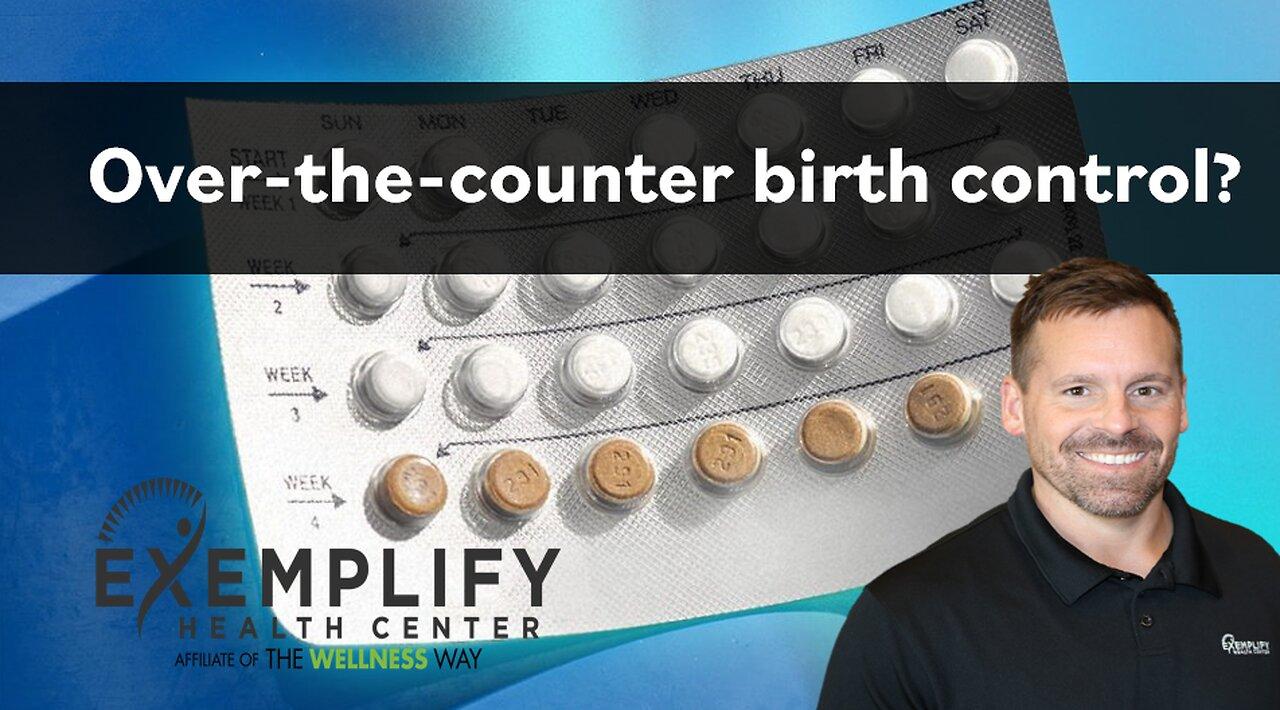The Post-Roe Landscape: Examining The Role Of Over-the-Counter Birth Control

Table of Contents
Increased Access and its Impact on Reproductive Health
Expanded access to over-the-counter birth control holds the promise of revolutionizing reproductive healthcare. Removing barriers to contraception is crucial for empowering individuals to make informed choices about their reproductive lives.
Reduced Barriers to Contraception
Over-the-counter access dismantles numerous obstacles that previously hindered access to birth control.
- Lower Costs: Eliminating doctor's visit fees and prescription costs makes birth control significantly more affordable, particularly for low-income individuals.
- Increased Convenience: Easy accessibility at pharmacies and convenience stores removes logistical hurdles, such as scheduling appointments and navigating transportation challenges.
- Reduced Reliance on Doctor's Appointments: Over-the-counter availability reduces the need for regular medical appointments, potentially improving adherence to contraceptive regimens.
- Potential for Improved Adherence: Convenient access may lead to better adherence to birth control, resulting in more effective pregnancy prevention.
This increased accessibility is particularly crucial for marginalized communities who often face systemic barriers to healthcare, including racial and ethnic minorities, individuals in rural areas, and those with limited financial resources. Expanding access to affordable birth control directly addresses health equity issues.
Potential for Improved Pregnancy Prevention Rates
Increased access to over-the-counter birth control has the potential to significantly reduce unintended pregnancy rates.
- Statistics on Unintended Pregnancies: A substantial percentage of pregnancies in the United States are unintended, resulting in significant emotional, social, and economic consequences.
- Correlation Between Access and Pregnancy Rates: Studies have consistently demonstrated a strong correlation between access to contraception and lower rates of unintended pregnancies.
- Potential Long-Term Societal Benefits: Lower rates of unintended pregnancies translate to reduced reliance on public assistance programs, improved maternal and child health outcomes, and a decrease in the societal costs associated with unplanned pregnancies.
Moreover, improved access to contraception could lead to a reduction in the number of abortions, aligning with the goals of many who advocate for comprehensive reproductive healthcare.
Challenges and Concerns Regarding Over-the-Counter Birth Control
While the potential benefits are considerable, several challenges and concerns must be addressed to ensure the responsible and equitable implementation of over-the-counter birth control.
Misinformation and Lack of Education
The widespread availability of over-the-counter birth control necessitates comprehensive public health education campaigns.
- The Need for Comprehensive Education Campaigns: These campaigns must accurately convey information about the efficacy, side effects, and proper usage of various contraceptive methods.
- Emphasizing Responsible Use and Seeking Medical Advice When Necessary: Individuals need to understand when to seek professional medical advice, particularly regarding potential complications or interactions with other medications.
Misinformation and improper use of birth control can lead to unintended pregnancies, health complications, and diminished trust in healthcare systems.
Potential for Increased Costs and Insurance Coverage Issues
The pricing model for over-the-counter birth control will significantly impact its accessibility.
- Analysis of Pricing Models: Careful consideration must be given to ensure affordability for all individuals, regardless of socioeconomic status.
- Concerns Regarding Affordability: High prices could negate the benefits of over-the-counter availability, potentially exacerbating existing health disparities.
- The Role of Insurance Companies in Providing Access: Insurance coverage will be critical in ensuring that over-the-counter birth control is accessible to a wide range of individuals.
Without careful planning, the shift to over-the-counter options could inadvertently create new barriers to access for those with limited financial resources.
Regulatory and Safety Considerations
Strict regulatory oversight is crucial to ensure the safety and efficacy of over-the-counter birth control.
- FDA Approval Processes: Rigorous testing and approval processes are essential to ensure the safety and efficacy of these medications.
- Safety Testing, Monitoring for Adverse Events: Post-market surveillance is crucial to identify and address any potential adverse events.
- Potential for Drug Interactions: Clear labeling and patient information must highlight potential drug interactions and contraindications.
Clear and accessible labeling, accompanied by comprehensive patient information, is paramount to safe and effective use.
The Future of Over-the-Counter Birth Control in the Post-Roe World
The future of over-the-counter birth control hinges on effective advocacy, policy changes, and technological advancements.
Advocacy and Policy Implications
Advocacy groups and policymakers play a crucial role in shaping access to affordable birth control.
- Ongoing Policy Debates: Policy discussions surrounding the pricing, insurance coverage, and accessibility of over-the-counter birth control are ongoing.
- Potential Legislative Changes: Legislative actions can significantly impact the affordability and accessibility of these essential medications.
- Impact of Various Policy Proposals on Access and Affordability: Careful analysis of different policy proposals is vital to ensure equitable access for all individuals.
Public opinion and social attitudes significantly influence policy decisions regarding reproductive healthcare.
Technological Advancements and Innovation
Technological advancements hold the potential to further enhance the accessibility and efficacy of birth control.
- Examples of New Birth Control Methods: Ongoing research and development are leading to new and improved contraceptive methods.
- Potential for Long-Acting Reversible Contraceptives (LARCs): LARCs offer significant advantages in terms of efficacy and convenience.
- Advancements in Digital Health and Telehealth: Telehealth platforms can improve access to information and remote consultations regarding birth control.
These advancements promise to further revolutionize reproductive healthcare and improve access to safe and effective contraception.
Conclusion: The Future of Over-the-Counter Birth Control in the Post-Roe Era
The shift towards over-the-counter birth control presents both significant opportunities and challenges in the post-Roe era. Increased access has the potential to dramatically improve reproductive health outcomes, particularly for marginalized communities. However, addressing concerns regarding misinformation, affordability, and regulatory oversight is crucial to ensure equitable and responsible access. Ongoing advocacy and policy changes are necessary to guarantee that accessible birth control, including over-the-counter contraception and affordable birth control options, becomes a reality for all. We must advocate for comprehensive sexual education, support initiatives promoting reproductive healthcare access, and ensure that everyone has the ability to make informed choices about their reproductive health. Learn more about available over-the-counter birth control options and join the conversation to ensure a future where everyone can access the reproductive healthcare they need.

Featured Posts
-
 Broadcoms V Mware Acquisition At And T Highlights Extreme Price Increases
Apr 23, 2025
Broadcoms V Mware Acquisition At And T Highlights Extreme Price Increases
Apr 23, 2025 -
 Christian Yelichs First Homer Since Back Surgery A Milestone Achieved
Apr 23, 2025
Christian Yelichs First Homer Since Back Surgery A Milestone Achieved
Apr 23, 2025 -
 Dfb Star Adeyemi Stilsicher In Dortmund Und Beim Bvb
Apr 23, 2025
Dfb Star Adeyemi Stilsicher In Dortmund Und Beim Bvb
Apr 23, 2025 -
 Ramadan 2025 Daftar Lengkap Acara Tv Untuk Mengais Berkah Di Bulan Suci
Apr 23, 2025
Ramadan 2025 Daftar Lengkap Acara Tv Untuk Mengais Berkah Di Bulan Suci
Apr 23, 2025 -
 Brewers Must Fix These 2 Issues For Another Playoff Bid
Apr 23, 2025
Brewers Must Fix These 2 Issues For Another Playoff Bid
Apr 23, 2025
